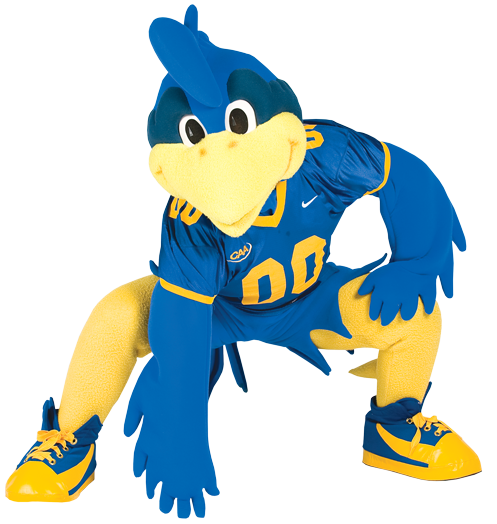
MAJOR FINDER
Filter by College
Filter by Subject
Earth Science Education
Focus on Majors: Earth Science Education: youtube.com/watch?v=4C2gugwslfc
Discover our world!
Chances are that if you love science, there was a teacher or mentor who inspired or encouraged that passion. And if you want to spark that excitement in others, studying earth science education is the way to start. Earth science educators are critically important to teach young people to respect and conserve the planet’s resources and to maintain and preserve a healthy, livable environment.
In the earth science education program, you will be prepared for a future as a high school science teacher. The program is accredited by the National Council for Accreditation of Teacher Education and emphasizes giving you a strong background in both liberal arts and content. You will complete all your field experiences and student teaching at one of Delaware’s fastest growing school districts during your sophomore, junior, and senior years, culminating with a 15-week student teaching practicum. On completing the program requirements, you will receive the University of Delaware's endorsement for teaching certification.
AREAS OF STUDY
- Earth History and Paleontology
- Hydrogeology and Environmental Geology
- Earth Materials and Geochemistry
- Plate Tectonics
- Climate Change
- Educational Methods and Theory
- Adolescent Psychology and Development
CAREER OPTIONS
- Middle or High School Science Teacher
- Middle or High School Earth Science Teacher
- Middle or High School Environmental Science Teacher
- Environmental Educator
- Science Outreach Coordinator
- Museum Guide
GRADUATE PROGRAMS
- Earth Science Education
- Geoscience
- Science Education
- Educational Technology
- Environmental Studies
- Educational Leadership
What’s special about this program?
While learning earth science from geologists, you will also complete professional studies courses from the School of Education to gain a foundation in education theory and psychology and field experiences before a science teaching methods course.
Because research is an important aspect of geological learning, you are encouraged to participate in student research projects in areas such as hydrogeology, geobiology, water science, and paleoclimate. You can also engage in geology-related summer field camp, field trips, and other available field experiences.
While the earth science education program is designed to certify teachers, you can also go on to rewarding careers in informal education or earth sciences.
Get Involved
All students who come to UD in one of the majors in the College of Earth, Ocean and Environment start in CEOE’s Living Learning Community, a dormitory where you will live with your peers and enjoy special academic and social programming, fostering a successful college experience from the day you move in. There are also many opportunities on campus for students interested in the environment, such as serving as an EnvironMentor, going on extracurricular environmental field trips, and joining registered student organizations like Students for the Environment and the Geology Club.
Sample curriculum
| ENGL110 | Critical Reading and Writing
|
GEOL107
|
General Geology |
GEOL110
|
Earth History |
MATH221
|
Calculus I
|
PHYS133
|
Introduction to Astronomy |
UNIV101 |
First Year Experience |
Creative Arts and Humanities Elective
|
|
Foreign Language Course
|
| BISC207 | Introductory Biology I
|
| EDUC413 | Adolescent Development and Educational Psychology
|
| GEOG202 | Earth Materials
|
| GEOG203 | Surficial Processes
|
| GEOG220 | Meteorology
|
| GEOG235 | Conservation of Natural Resources
|
Creative Arts and Humanities Elective
|
|
History and Cultural Change Elective
|
|
| Social and Behavioral Sciences Elective |
| CHEM103 | General Chemistry
|
| EDUC414 |
Teaching Exceptional Adolescents
|
| EDUC419 | Diversity in Secondary Education
|
| GEOL304 | Sedimentology and Stratigraphy
|
| GEOL305 | Structural Geology and Plate Tectonics
|
| GEOL320 | Water & Society
|
| GEOL372 | Introduction to Geographic Information Systems
|
| MAST382 | Introduction to Ocean Sciences
|
Social and Behavioral Sciences Elective
|
|
| Elective Courses |
| EDUC400 | Student Teaching
|
| EDUC420 | Reading in the Content Area
|
| PHYS201 | Introductory Physics I
|
| SCEN491 | Teaching Science in Secondary Schools
|
| SCEN492 | Student Teaching Seminar
|
| Geology Courses |

